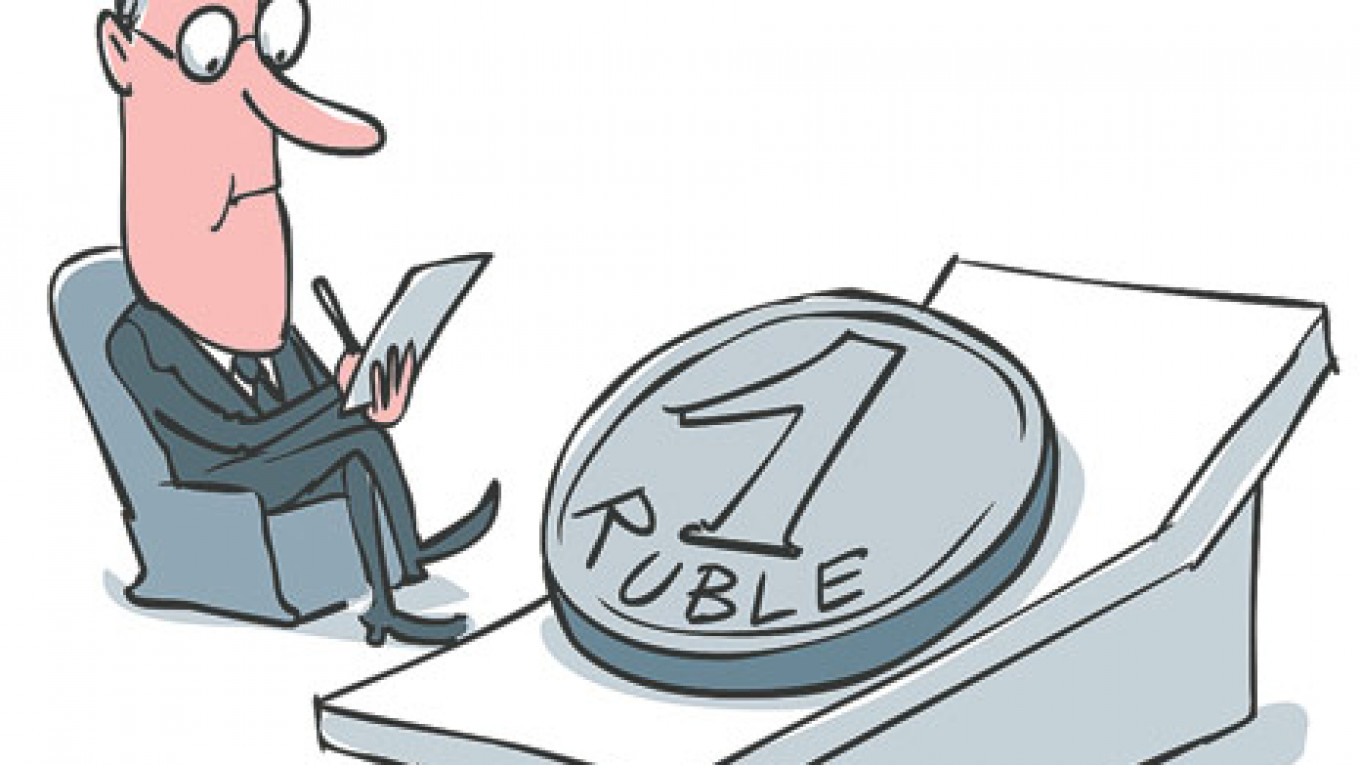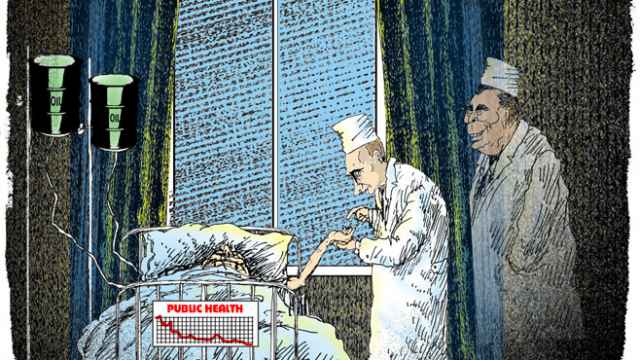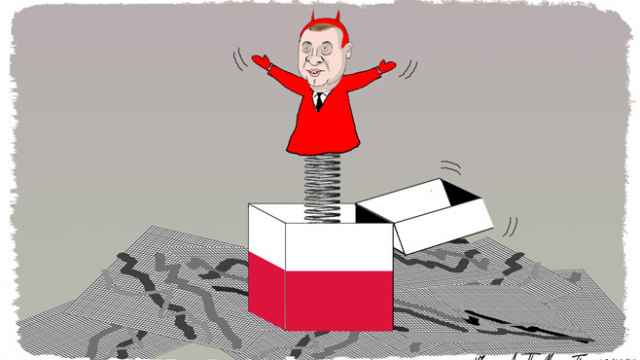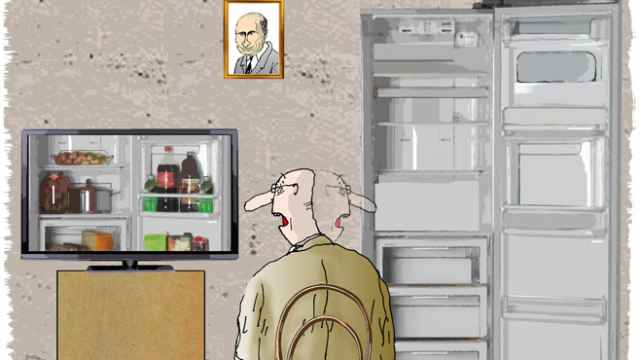Every policy has a cost. Whether seen or unseen, any government action will inevitably have a range of impacts on the economy. Some of these costs are easy to calculate. When the U.S. government, for example, buys an aircraft carrier, it's not a terribly complicated exercise to determine how much money was spent: even if there isn't a single budget line-item you can just add up all of the contracts and purchase orders.
It's the unseen costs where things can get a little tricky. There is an economic cost to purchasing an aircraft carrier as opposed to paying for a new highway or bridge, just as there is an economic cost to having the government take money away from the private sector to pay for anything at all. By changing the calculus in which private actors engage, government policy can have a real economic impact orders of magnitude larger than the direct costs of implementation. Hidden costs, in other words, matter a lot.
That's pretty basic as far as it goes, the roughest of rough outlines of economic reasoning, but the idea that everything has a price is a profoundly depressing one. And so, from time to time, someone appears and advocates on behalf of a plan that will supposedly resolve all sorts of complicated problems without any "cost." Free lunches for everyone! Presidential economic adviser Sergei Glazyev is the latest in a long line of such figures and will not be the last.
According to a recent report in RBC, Glazyev has prepared a comprehensive strategy to "overcome the effect of the West's economic sanctions" and to "stabilize the course of the ruble." As far as goals go both of these are entirely understandable, if not entirely praiseworthy (an exchange rate is best thought of not as a goal in and of itself, but as an output of other kinds of policy).
The real problem, though, isn't in Glazyev's goals but in how he proposes to go about attaining them. Russia could conceivably "overcome Western sanctions" by engaging in a widespread liberalization of its own business sector, freeing entrepreneurs from the conflicting (and very expensive!) demands of an out-of-control regulatory apparatus. By making Russia's domestic economy more dynamic, flexible, and resilient, such a step would clearly undermine the West's current policy, which is designed to maximize Russia's economic vulnerability.
Glazyev's ideas, however, are based on explicitly anti-liberal grounds, and envision a wide-ranging government crackdown on a number of different types of economic activity. Glazyev's plan, for example, would ban the "unjustified" purchase of foreign currency by legal entities. (It is taken for granted that the government would be able to determine which purchases were "justified" and which were not.)
Glazyev also proposes a "temporary" (which, given the nature of government, is to say "permanent") tax on foreign currency translations and cross-border payments. Glazyev would additionally ban loans in foreign currency for all non-financial corporations as well as introduce compulsory sales (on in less polite terminology "expropriations") of any foreign currency-denominated revenue. Just for good measure, he would also "temporarily" freeze prices as well as empower the Federal Antimonopoly Service to establish and enforce a margin somewhere between producers' cost and the market prices.
Perhaps my favorite idea, though, was the proposal to "allow" Russian companies to default on any debts owed to banks from countries which have introduced sanctions against Russia. Now there's not actually anything preventing Russian companies from walking away from these debts. Companies go bankrupt all of the time, it's just a part of the natural cycle of the business world.
But what is absolutely not in the Russian government's power to "allow" is the consequences of walking away from a debt. Any Russian company that refuses to pay back what it owes will immediately, and quite justifiably, be sued. And if any such company tried to cite Glazyev's law as "justification" for their non-payment they would (again, quite justifiably!) be laughed out of court.
There is simply no other way to say it: Glazyev's "plan" is a compendium of lazy, irrational thinking that, were it ever put into practice, would quickly set Russia on the road to economic apocalypse. Literally every action Glazyev proposes would make the problems he is attempting to solve worse. Take inflation. As ought to be obvious, freezing prices at some arbitrary, government-established level will not "stabilize prices."
Inflation is a basic part of any economic system, and trying to ban it will be about as effective as banning sunrise or sunset. It simply isn't possible. The Soviet government also froze prices and the result was that the (inevitable) impact of inflation was reflected in pervasive shortages. If the Russian government tried to do this again, the results would, sooner or later, be exactly the same.
Glazyev has not, apparently, had much discernible influence on Russia's actual economic policies. After oil prices collapsed, the Central Bank wisely decided to let the ruble float, and the government has so far avoided any attempts to introduce capital controls. It is true that there has been some tinkering with foreign currency purchases by state-owned companies, but so far these have been quite limited in scope.
Maybe the purpose of Glazyev's report was simply to rally the Russian business community to the government's side by reminding them that, despite the manifest flaws of the status quo, there are far worse options. But Glazyev's plan reflects exactly the same sort of "shoot first, ask questions later" mentality that is ever more evident in the political sphere. Unfortunately, it shouldn't surprise anyone if many of these ideas are actually put into practice.
The reality, though, is that Russia is in for a great deal of economic pain. It is unavoidable. Pretending that more government control will avert this will only make the very real problems facing the country that much worse.
Mark Adomanis is an MA/MBA candidate at the University of Pennsylvania's Lauder Institute.
A Message from The Moscow Times:
Dear readers,
We are facing unprecedented challenges. Russia's Prosecutor General's Office has designated The Moscow Times as an "undesirable" organization, criminalizing our work and putting our staff at risk of prosecution. This follows our earlier unjust labeling as a "foreign agent."
These actions are direct attempts to silence independent journalism in Russia. The authorities claim our work "discredits the decisions of the Russian leadership." We see things differently: we strive to provide accurate, unbiased reporting on Russia.
We, the journalists of The Moscow Times, refuse to be silenced. But to continue our work, we need your help.
Your support, no matter how small, makes a world of difference. If you can, please support us monthly starting from just $2. It's quick to set up, and every contribution makes a significant impact.
By supporting The Moscow Times, you're defending open, independent journalism in the face of repression. Thank you for standing with us.
Remind me later.






